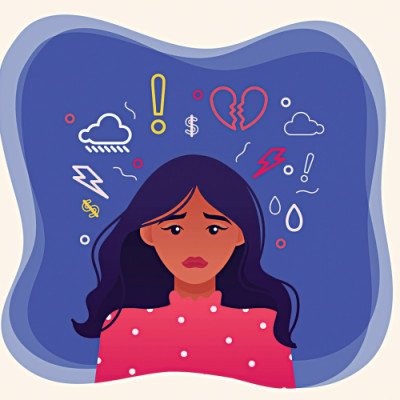About The Someone Else Has It Worse Card

When eighteen-year-old Tanha*, who has been struggling with anxiety disorder for a long time, opened up about her condition to a friend, she received with some sympathy this response: At least this is just mental health. [Insert a name] has it way worse with her physical health problems.
The mentioned anecdote is just not limited to Tanha and her friend or to that particular incident. A lot of time we hear people consoling someone by reasoning that someone else has it worse and so you should just stay content with our lives. Parents, peers and even teachers at times use this card in various situations without assessing whether it's doing any good or not.
Everyone matters
There's really no time to remind anybody who is in some sort of difficulty that someone else, somewhere in the world, has it worse. We are all part of a society where the diversity ranges from one's background to sensitive personal issues. Not everyone is going to have the same problems or have the same level of problems either. Just like in a class, someone is going to ace while someone is going to fail miserably. That doesn't mean that the one who topped in the class but could not require their expected grades should be shamed if they feel awful about it just because someone else failed. Similarly, if a person is going through a difficult phase in life because of their mental health issues can't be in any way consoled by means of others' distress that might seem comparatively worse to you. Though most of the time people don't mean any harm by it and often mistake it as something that the victim can take strength from, but if anything, using this card is only belittling someone's pain and makes them feel terrible for feeling sorry for themselves in the first place. And that is no form of consolation and does nothing but make a person feel even more insignificant. Treating everyone's problems as substantial is one sort of equality too.
So what to do
Real compassion comes in from valuing and having the mentality to try to understand everyone's situations. If your friend is upset about something, try to listen to them. If your child seems distraught about a certain problem, do not treat it as trivial. If someone feels unproductive and is disconcerted by it, tell them that it's absolutely okay and try to get them the help they need. Especially in these unprecedented times, we should be caring about everyone's well-being. Dragging another's condition to alleviate a person's problem is unnecessary and ebbs the said person's interest to further share anything with you. Rather, treating everyone with love and making them feel at home when they open up about something is way better.
Because at the end of the day, when we are sharing something with anyone, we don't want an instant solution, all that we crave for is support, love and validation.
*Name of the individual has been changed.
You can reach out to the author at 01shreshtha7@gmail.com


 For all latest news, follow The Daily Star's Google News channel.
For all latest news, follow The Daily Star's Google News channel. 



Comments